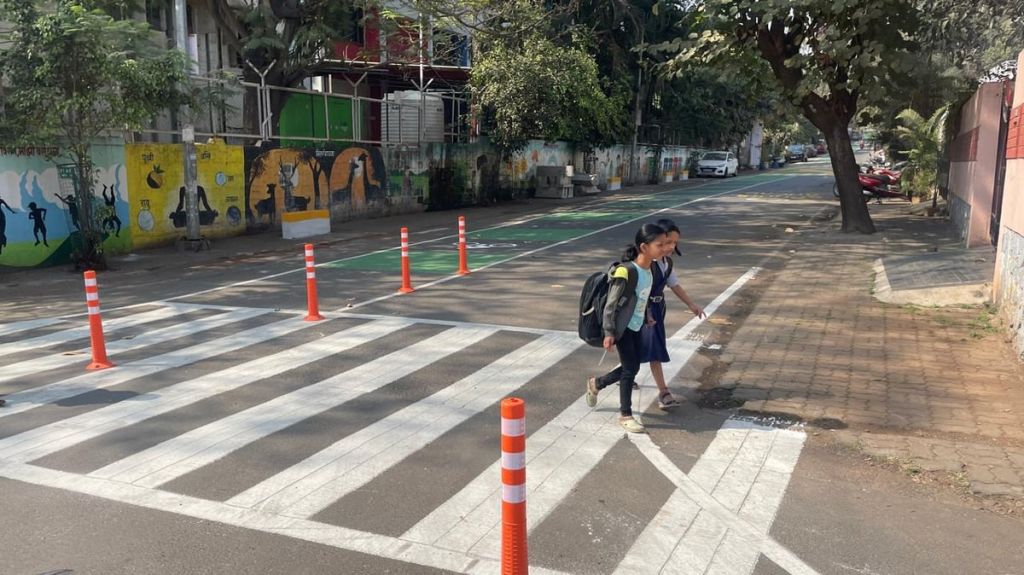
The Pimpri-Chinchwad Municipal Corporation (PCMC) has launched a week-long trial to redesign the school zone around Jnana Prabodhini Navanagar Vidyalaya (JPNV) in Nigdi, aiming to enhance student safety and reduce road crashes. This initiative commenced on January 20 and has been undertaken in collaboration with the Global Designing Cities Initiative (GDCI) under the Bloomberg Philanthropies Initiative for Global Road Safety.

The PCMC intends to take up more schools in its jurisdiction to create safer school zones to reduce road crashes and fatalities. They are also working on guidelines that envision safe and equitable access to schools for all children through sensitive planning and design of school zones.
With over 2,000 students across pre-primary to secondary levels at JPNV, more than 30% of whom walk or cycle to school, the project seeks to address critical safety challenges posed by high-speed corridors surrounding the school. The trial tests solutions for road safety, traffic calming, junction improvements, waiting areas and resting spaces that include raised pedestrian crossings and curb extensions.

The proposed road design changes in the vicinity of the school, including wider sidewalks, raised crossings for safe pedestrian movement, and a dedicated cycle track, are expected to reduce driver speeds below 20 km/h. The design will help reclaim approximately 5,000 square metres of space dedicated to pedestrians and cyclists. It includes a continuous, unobstructed sidewalk or footpath with a width of 4.0 metres, paired with a 2.4-metre-wide dedicated cycle track, ensuring safe and efficient mobility for all users.
PCMC Commissioner Shekhar Singh said that the safety of the students is the civic body's top priority. "The redesign of the school zone has elements that would reduce driver speeds and provide universal access to students, teachers, parents and residents. This trial is the first step towards a transformation that ensures the safety of students. We are developing guidelines to make the school zones in Pimpri-Chinchwad safer through better design," said Singh.

Students' feedback taken to improve the design of school zone
To design the improvements around the school zone, PCMC and GDCI engaged with the students to understand their daily challenges while commuting to school and their aspirations and needs on the streets. The engagement found that the students faced several mobility-related challenges, including difficulty crossing, parking encroachments, unsafe street infrastructure and poor traffic enforcement in the school vicinity. Engagement workshops were also conducted with the Parent-Teachers Association of JPNV, staff of the school and the residents along the stretch of the trial. After seeking their feedback, input and suggestions, this project moved forward into this interim transformation.
Safer school zone assessment to be done after trial period
After the trial period, PCMC and GDCI will assess the impact of the transformation by collecting both qualitative and quantitative metrics. These will include data on the street's initial conditions, such as vehicular speeds and pedestrians and children's perceptions of safety. Following this, post-trial metrics will be gathered to understand feedback, evaluate the impact of the transformation and measure the reduction in vehicular speeds, PCMC will implement capital construction by following the due process of the civic body.